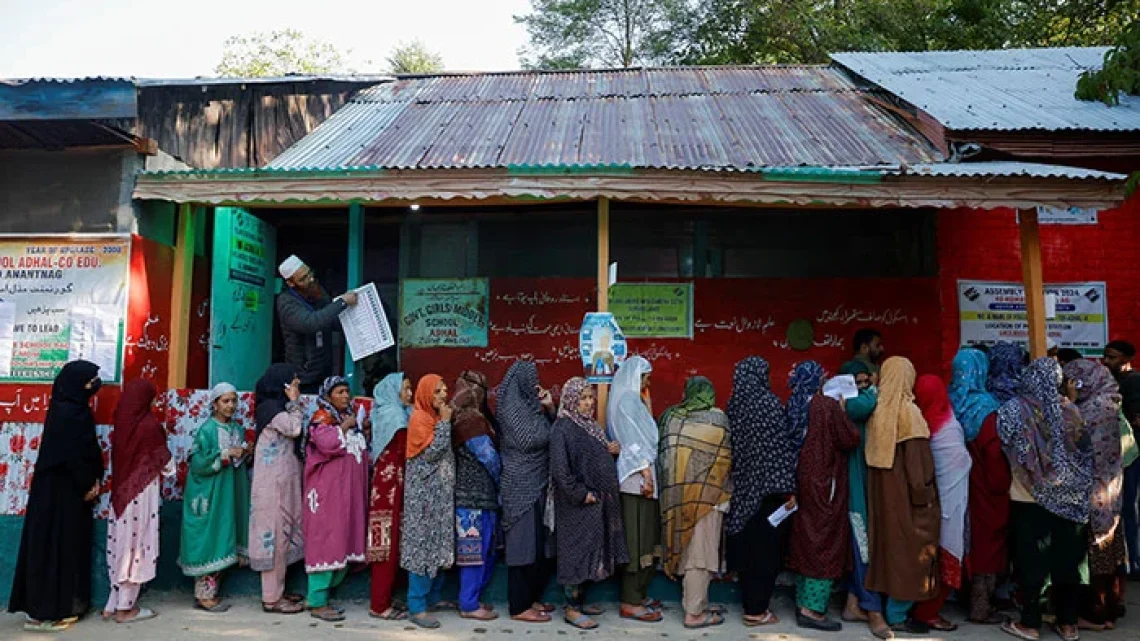
Complex Arithmetic of IIOJK Seats And Votes
September 25, 2024The Supreme Court of India directed elections in Indian illegally occupied Jammu and Kashmir (IIOJK) for December 2023, while upholding the controversial abrogation of Article 370. This decision has significant implications for the region’s political landscape.
In the verdict dated December 11, 2023, the Supreme Court ordered the elections to proceed despite ongoing tensions. However, prior to the elections, the central government moved to limit the powers of the J&K legislature.
Key authorities were transferred to the Lieutenant Governor, diminishing the legislative body’s influence. This included powers over police, public order, appointments, and transfers, which significantly alters governance in the region.
The J&K legislature can no longer make laws concerning education, taxes, marriages, property, and forests. This transfer of authority has sparked dissatisfaction among residents, particularly in Kashmir.
The delimitation process also favored Jammu, allocating it more seats despite a smaller population. Jammu now holds 48% of legislative seats while representing only 44% of the population, further igniting tensions.
Under this new arrangement, Jammu gained six additional seats, while Kashmir received just one. This has led to widespread discontent among Kashmiris, who feel their voices are being marginalized.
As the elections approach, voting has begun, with 66 out of the 90 seats still needing to complete the process by October 1. Many Kashmiris are participating in large numbers, viewing their votes as a form of protest.
This “protest vote” reflects widespread opposition to the 2019 scrapping of autonomy under Article 370, perceived as a loss of identity imposed without local consultation.
Engineer Rashid’s victory in North Kashmir, defeating prominent political figures, exemplifies this sentiment. His win signals a strong anti-establishment mood among the electorate.
Initially, Jammu’s Hindu-majority areas supported the abrogation of Article 370. However, disillusionment has grown due to economic stagnation and job shortages, causing shifts in voter sentiment.
The BJP aims to secure a majority in Jammu, contesting 43 seats while fielding candidates in 19 seats in Kashmir. The party hopes to capitalize on anti-incumbency sentiment and the recent Scheduled Tribe status granted to the Pahari community.
Opposition parties, including the National Conference (NC) and Congress, are also contesting. However, their efforts appear lackluster compared to the BJP’s focused campaign.
Omar Abdullah’s NC remains popular in Kashmir, promising to restore special status and repeal the Public Safety Act. Meanwhile, Mehbooba Mufti’s People’s Democratic Party (PDP) is campaigning independently, aiming for strong support in South Kashmir.
The election landscape is further complicated by the presence of other parties, such as Jamaat-e-Islami and Engineer Rashid’s Awami Ittehad Party. Their participation adds depth to the electoral dynamics.
BJP’s success hinges largely on support from Jammu while navigating challenges posed by armed attacks and public dissatisfaction with governance. The outcome of the elections could also be influenced by independent candidates and parties like the PDP.
Voters in J&K are primarily concerned with issues of stability, growth, job opportunities, education, and healthcare. As the elections draw near, the region’s political future remains uncertain.
The coming months will reveal whether the voices of Kashmiris will be acknowledged or further marginalized in this complex political environment.

